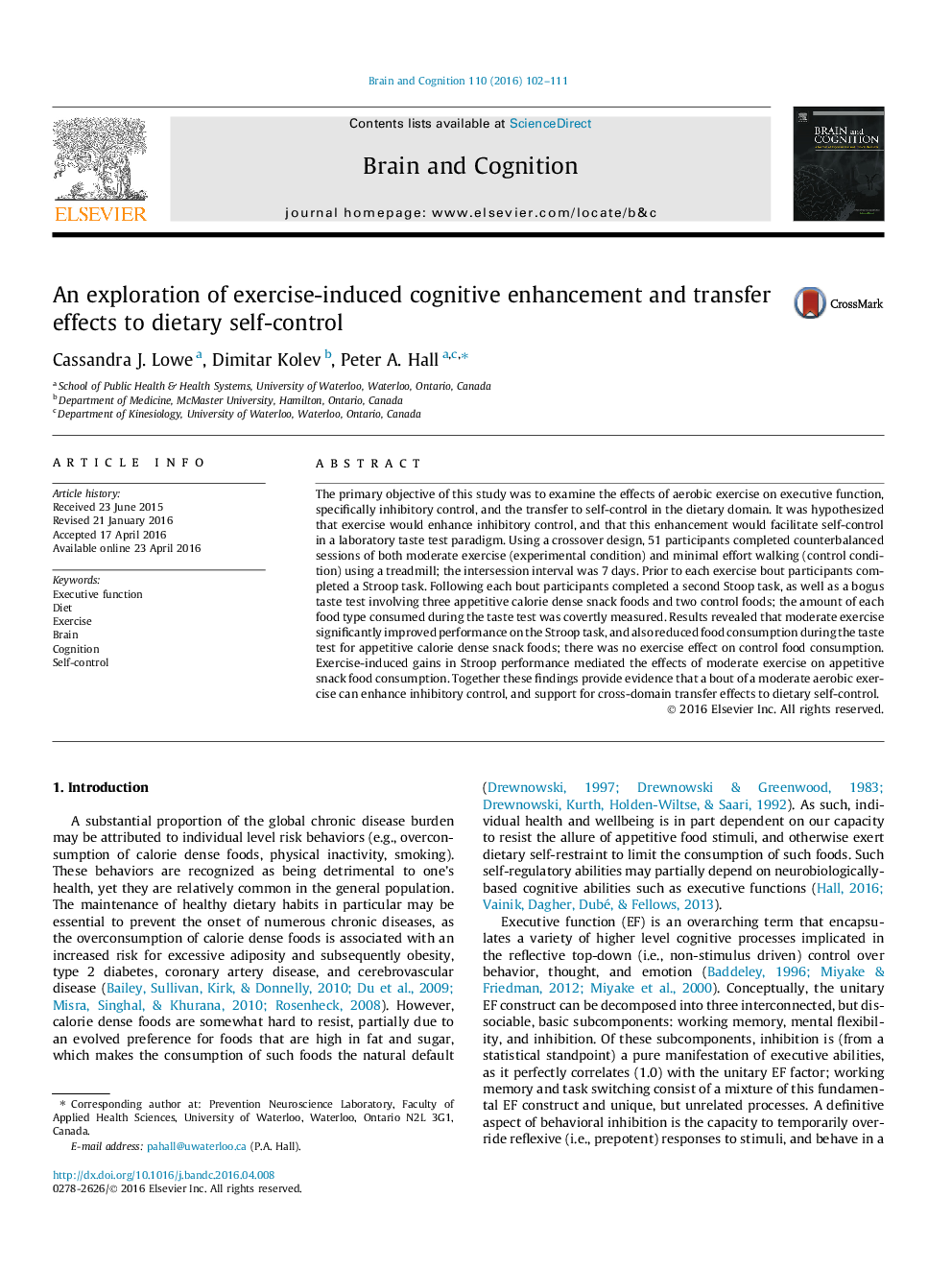| Article ID | Journal | Published Year | Pages | File Type |
|---|---|---|---|---|
| 5041211 | Brain and Cognition | 2016 | 10 Pages |
â¢Prior studies have demonstrated that exercise can enhance executive functions (EFs).â¢It is not known if such effects have real world relevance (i.e., cross-domain transfer).â¢In the current study an acute bout of exercise improved both EF and dietary restraint.â¢Exercise-induced improvements in EF mediated improvements in dietary restraint.â¢Acute exercise may enable dietary self-restraint via brain-mediated mechanisms.
The primary objective of this study was to examine the effects of aerobic exercise on executive function, specifically inhibitory control, and the transfer to self-control in the dietary domain. It was hypothesized that exercise would enhance inhibitory control, and that this enhancement would facilitate self-control in a laboratory taste test paradigm. Using a crossover design, 51 participants completed counterbalanced sessions of both moderate exercise (experimental condition) and minimal effort walking (control condition) using a treadmill; the intersession interval was 7Â days. Prior to each exercise bout participants completed a Stroop task. Following each bout participants completed a second Stoop task, as well as a bogus taste test involving three appetitive calorie dense snack foods and two control foods; the amount of each food type consumed during the taste test was covertly measured. Results revealed that moderate exercise significantly improved performance on the Stroop task, and also reduced food consumption during the taste test for appetitive calorie dense snack foods; there was no exercise effect on control food consumption. Exercise-induced gains in Stroop performance mediated the effects of moderate exercise on appetitive snack food consumption. Together these findings provide evidence that a bout of a moderate aerobic exercise can enhance inhibitory control, and support for cross-domain transfer effects to dietary self-control.
